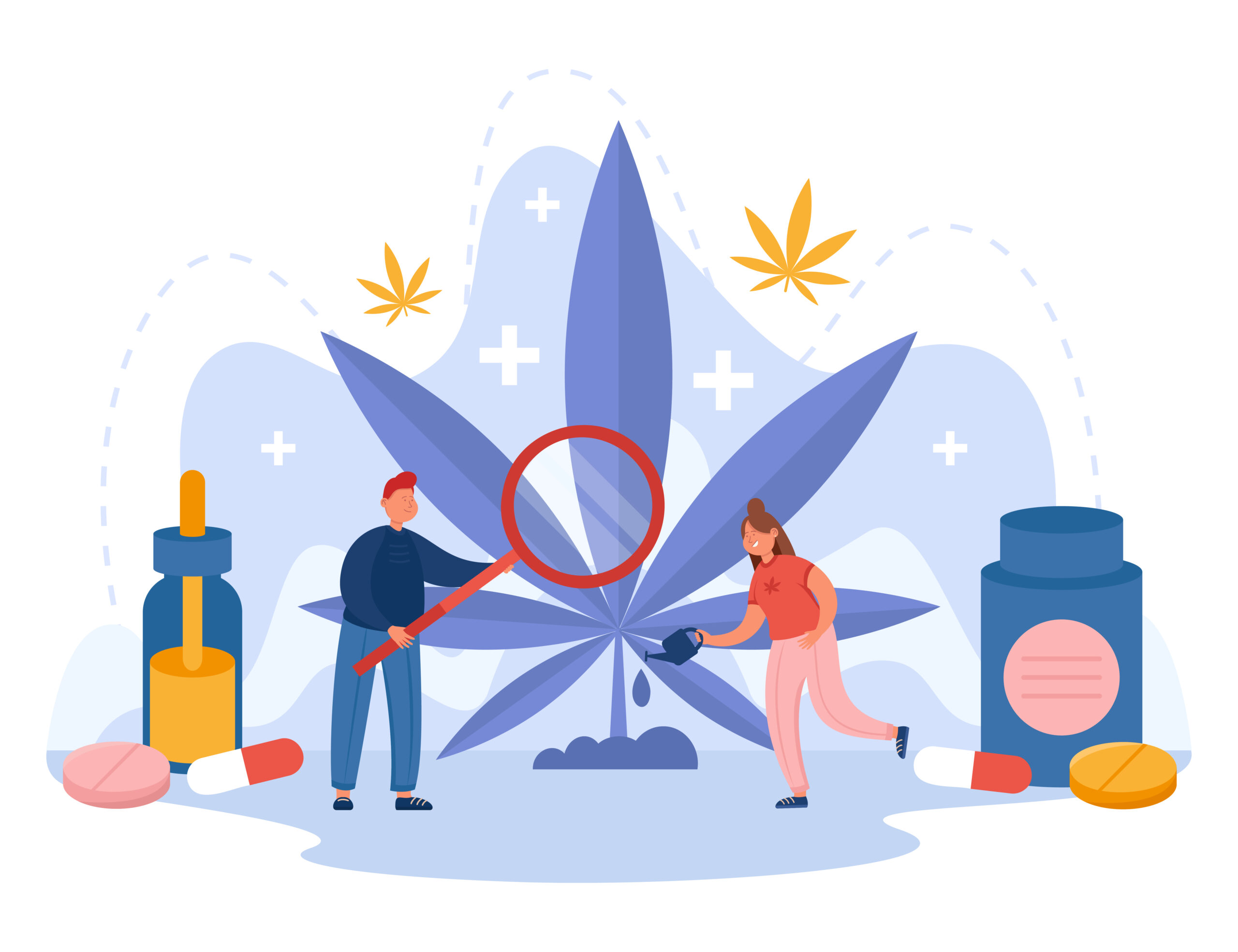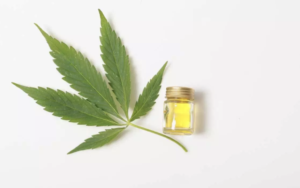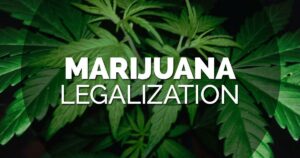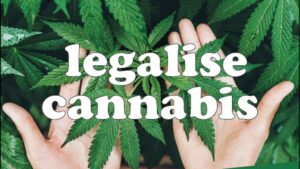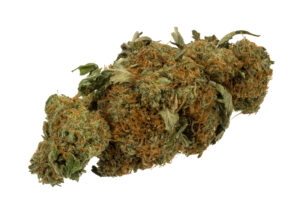The best way to proceed is to begin by recapping the timeline of amendments to the Narcotics Act in Thailand.
The phenomenon began in February 2019 when cannabis use became approved for medical purposes. This is quite straightforward and translates to recreational use being outlawed.
In December 2020, things took another step forward when the Thai government made a provision for cannabis cultivation and product production. However, the requirement was for a THC content of below 0.2%. For reference, THC is the psychoactive component of marijuana that contributes to the “high” or “stoned” feeling.
CBD
This allowance allowed the roots, stocks, stems, and leaves of the cannabis plant to be removed from the Thailand narcotics list. However, the flowers and the buds did not get removed as they were high in THC content. This cultivation was only allowed via government permission.
On January 22, cannabis (including the buds) was removed from the narcotics list. However, this does not include any extract that goes above the 0.2% THC content threshold. The real intention was to provide relief for those interested in growing the plant for research or medical purposes.
With the timeline out of the way, the focus can be shifted to breaking down and exploring different elements that the litigation speaks to.
The Delisting of Cannabis and Its Real Meaning
The provisions made by the government’s decisions do not mean that recreational smoking is now no longer a frowned-upon offense legally. The delisting is for scientific and medical purposes, including the inclusion of the plant in health products.
Therefore, you may notice that CBD products, for example, are present in alternative health food stores. Of course, there is a whole popularity element to this, which explains why the products are not as mainstream as some people would like.
Medical marijuana has a host of applications in both simple matters, such as pain relief, and more complex matters, such as aggressive cancers. This was the true focus of the Thai government with the move to delist the substance.
What may make this a little more confusing is the fact that cultivation is not allowed. At this point, it is perfectly legal to grow weed at the home in Thailand. However, there are a few caveats that apply here.
First, there is a registration process that goes through the relevant authorities. Additionally, the amounts that can be cultivated are small and the strains must be those with a low THC content.
The reality is even with more open use of marijuana in medical applications, the government still wants to be able to maintain tight control of the industry.
The Future Outlook
No one is exactly sure what the future holds for the complete legalization of cannabis in Thailand, such that recreationally smoking strains that go above this current THC threshold becomes acceptable legally.
However, considering the progressive trend up to this point, it’s not beyond the realm of possibility that such a thing may come to pass down the line. After all, in September 2024, the current import restrictions on cannabis are going to be amended.
By that time, who knows if this will only speak to strains below the current THC threshold or not. Even so, Thai citizens can expect a paradigm shift when greater investment and other business opportunities start cropping up based on international influence.
On the production side of things, while the locally licensed entities only consist of government organizations and a few universities, the plan is to gradually include more mainstream private sector applicants in the future.
Again, you can see that the government is employing a phased approach so that the current sense of control can be maintained, regardless of the amount of freedom given.
You should also bear in mind that the Narcotics Act in its current form is up for review again in 2023. No guarantees can be made on what that is going to look like, but enthusiasts are hoping for greater acceptance.
Culinary Applications
You may or may not have noticed that cannabis has seen a little bit of culinary use in Thailand. For example, there is the Is Am Are Restaurant that incorporates the plant into some of its dishes, such as its omelets.
Restaurants in the country are legally cleared to use certain parts of the plant in their dishes. Remember that there are FDA-certified producers, limited as they are. Therefore, if these restaurants were to acquire leaves from a licensed entity, for example, using them in meal preparation would not be an issue.
If this is something you haven’t seen yet, then it’s understandable, considering that culinary cannabis use is still in its infancy stages. You would need to visit one of a select few restaurants that have opted to start going this route.
Bear in mind that the Ministry of Public Health and the FDA are still not yet completely aligned where cannabis plant use is concerned. So, apart from the supply chain popularity challenge, there is the matter of not wanting to unknowingly overstep a boundary that hinders some other restaurants from taking the same step.
Is Weed Now Legal in Thailand?
All the information collated here aims to answer this simple question. Can someone now say weed is legal in Thailand?
In the current drug law state, cultivation and possession of marijuana still constitute an offense unless it is for medical or research purposes. However, more leniency is granted where CBD products are concerned, provided the THC content falls below 0.2%.
Products that go below that threshold are allowed for personal use in small quantities. Similarly, cultivation of low-THC strain versions of cannabis is allowed at the home, but only after the requisite approval has been granted to do so on a very low scale.
Restaurants may incorporate parts of the cannabis plant into their dishes legally, provided that the said components are purchased from one of the licensed production entities in the country.
It is still against the law to smoke marijuana recreationally. Based on the direction that the country seems to be headed in and the fact that another review of the narcotics act is on the horizon, there has never been a greater likelihood for recreational smoking to become acceptable.
Until that happens, however, if you do not fall under one of the categories of people who are allowed to cultivate or use the cannabis plant, you are running a legal risk by choosing to do so.
Penalties for Violations
If you overstep the legal boundaries for cannabis cultivation, possession, or use, what kind of penalties are you looking at in Thailand?
First, these are incredibly severe waters to tread. Certainly, you are not risking the death penalty as you may in another Asian territory such as Indonesia, but there is still a lot on the line here with any product that carries a THC concentration of over 0.2%.
You can be fined anywhere between 40,000 Baht and 1.5 million Baht. Alternatively, you may be given a prison term ranging anywhere from one year to 15 years.
As you can see, the lower and upper boundaries for the prison time and the fine are quite far apart. That’s because the stipulated punishment depends on many variables including what the offender was doing when the cannabis was found, how the person came about it, what the plan was for the substance, etc.
Conclusion
There’s no doubt that Thailand has made significant progress, especially when you think back to where the Narcotics Act is coming from. For your recreational use, you’re only limited to CBD products that fall below the 0.2% THC threshold.
Anything beyond that must be rooted in medicine or research and the requisite approvals or licenses must be obtained. Considering how the Ministry of Public Health and the FDA have made cannabis access and used for the public less restricted, one can only assume that it represents the start of a new direction for Thailand.



